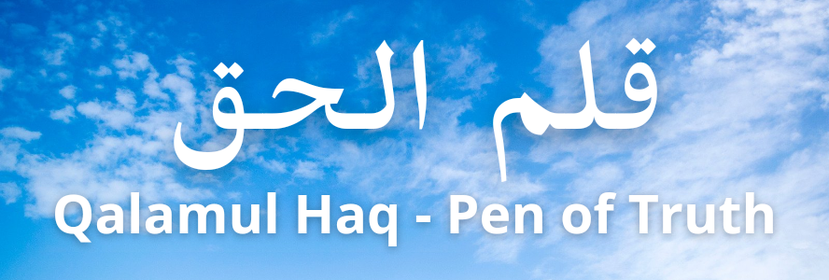- Details
- Hits: 1621
Random Articles
- Rules of A Muslim Home-Fourth Rule-Healthy Living
- A FITTING RESPONSE TO FAROUK AHMAD ON HIS OPINIONS ON COVID FEAR, SOCIAL DISTANCING AND MUSAAJID
- The Cheap excuses of Shakir bayat of the Deen Team
- JAMIAT KZN GOING AGAINST THEIR INTERFAITH INITIATIVE
- A VERY SPECIFIC LESSON FOR US TODAY
- ADVICE & PRESCRIPTION TO GIVE UP DRUGS AND OTHER BAD HABITS-MOULANA AS DESAI
- UUCSA – DUCSA! WE NEED ANSWERS!!!
- THE FUCTION OF THE ULAMA AND ADVICE FOR THE ULAMA
- Fataawa On Attending Places Of Fitna And On Music
- Determining Success through Fulfilling the Command of Allah
CLARIFICATION ON SPEAKING ABOUT WRONGS OF THE DEAD
Regarding the hadith: “Speak of the good of your deceased and abstain from speaking about his wrongs...”
The commentators explain here that in certain circumstances it will be permissible to mention the wrongs of the deceased if there is fear of Fitnah by remaining silent on his wrongs. They cite the examples of a Faasiq and a Bid'ati and a few others.
Hazrat Moulana Ganghohi Rahimahulla has explained this very beautifully in Kawkabud Durri.
If this Hadith is general that you cannot speak out of any person who passed away then you cannot speak out against Hajaaj. Why did the Sahaabah and Taabi’een speak out against him after his demise.
Similarly, why did the Muhadditheen write kitaabs on jarah wa tadeel, explaining the wrongs of the various narrators of Hadith. All written after their demise for the benefit of the ummah, to save them from accepting Ahaadith from wrong people.
Ulama learn about criticisms levelled against Moudoodi and even ibn Taymiyyah.
Are they implying that all that they learnt on these subjects and ghair Muqallids based on these people who have passed away is also incorrect and that our Akaabireen have erred?
Those who take up issue with refutations and critiques against Ulama who have passed away recently should study the subject matter further. We refer to Ulama as well.
(A more detailed article on this is being prepared and will be published soon, Insha Allah Ta'Aala)
Most Read
- In the Name of Islam by Hazrat Maulana Yunus Patel Saheb (rahmatullah alayh)
- FORMATION OF THE ORIGINAL JUSA/UUCSA
- Useful Links to Other Educational Sites
- Solace in Sickness
- MUFTI SIRAJ DESAI SAHEB ANSWERS QUESTIONS ON PROPOSED MMB
- REGARDING THE INTERFAITH PRAYERS THAT JAMIAT SOUTH AFRICA ATTENDED
- GIVEN MY PRIVILEGE AS A WOMAN, I ONLY DEGRADE MYSELF BY TRYING TO BE SOMETHING I’M NOT
- SANCTITY OF THE MASJID
- Audio Section
- Let them meet us on our terms (Not Television)











